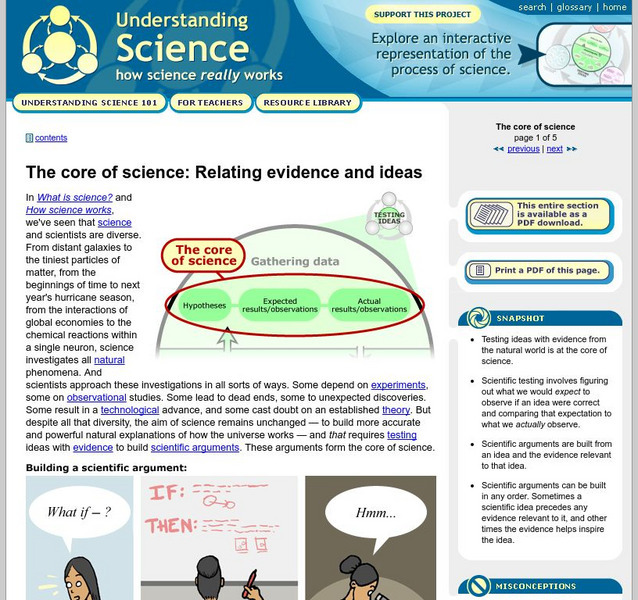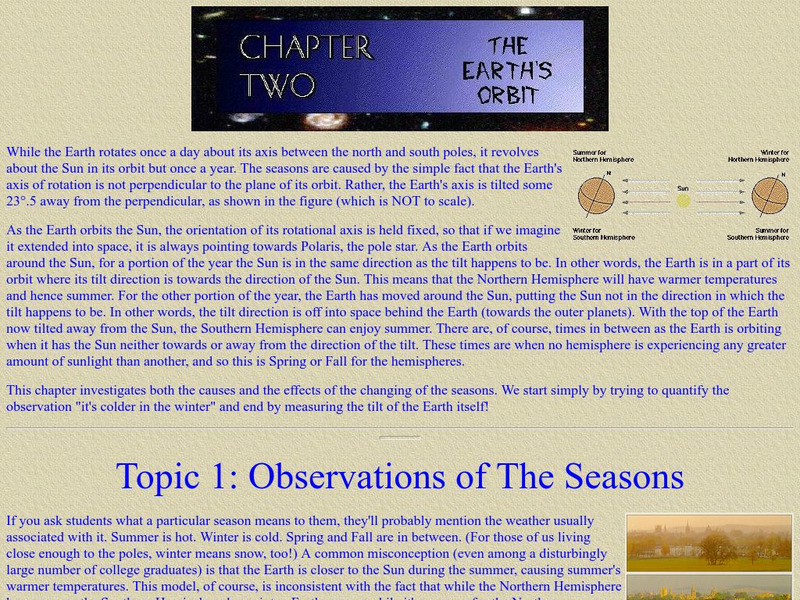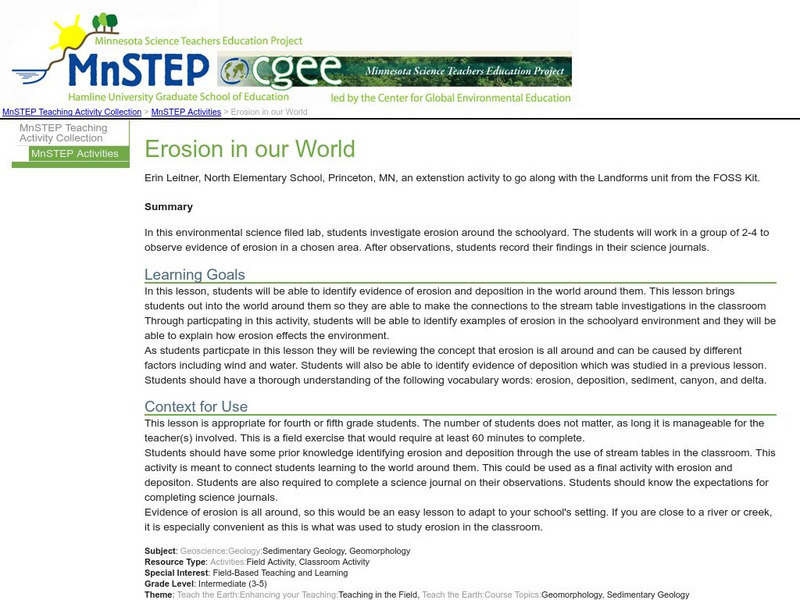Indiana University
Indiana University: Science vs. Non Science
This mini-lesson at the Evolution and Nature of Science Institute site from Indiana University provides a criteria by which students can evaluate an idea or explanation for scientific credibility.
University of California
Understanding Science: The Core of Science: Relating Evidence and Ideas
Learn that the real process of science proceeds at multiple levels and sorts through many ideas, retaining and building upon those that work, and relating the evidence discovered with scientific ideas.
Smithsonian Institution
Smithsonian Education: Minerals, Crystals, and Gems
Through this series of three lessons, students will gain an understanding of the basics of mineral science. In their investigation they will also work through the scientific process as they practice their observation skills, form...
Harvard University
Eyes on the Sky, Feet on the Ground: The Earth's Orbit
Students perform many inquiry activities related to Earth's orbit. Included are recording daily temperatures, observing the sun's path over several weeks, tracking sunrise and sunset times, and angle of sunlight. Diagrams make lessons...
Science Education Resource Center at Carleton College
Serc: Erosion in Our World
Students collect evidence to investigate erosion and deposition around the schoolyard.
University Corporation for Atmospheric Research
Ucar: The Systems Game
Systems thinking is an important concept across the Earth sciences. In this game, students either are a part of a system or serve as scientists tasked with observing and making sense of the system moving in front of them.





